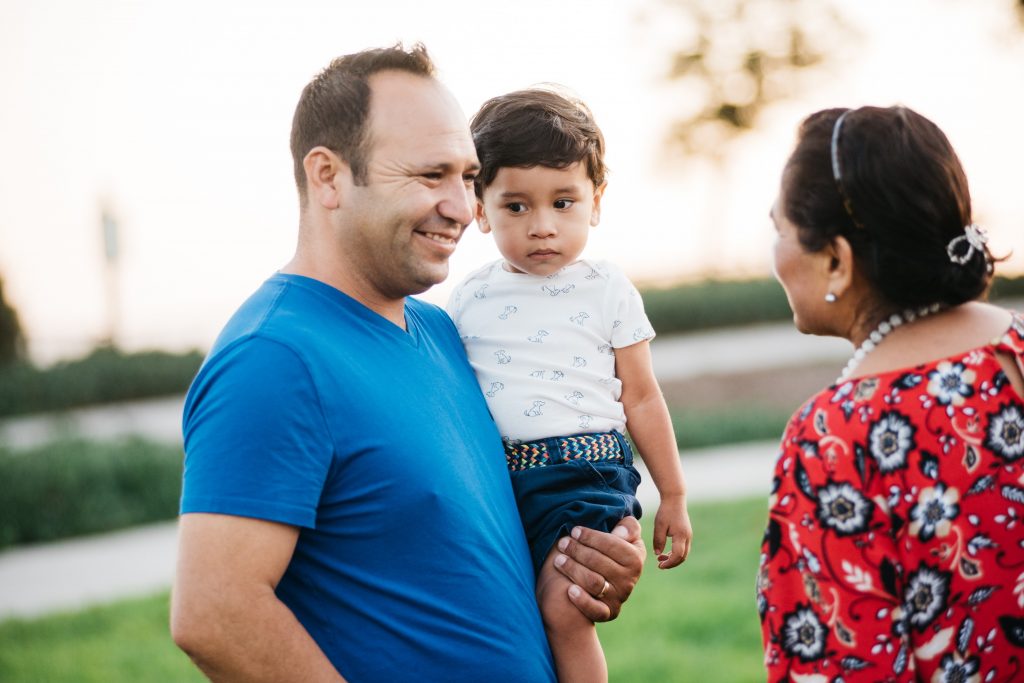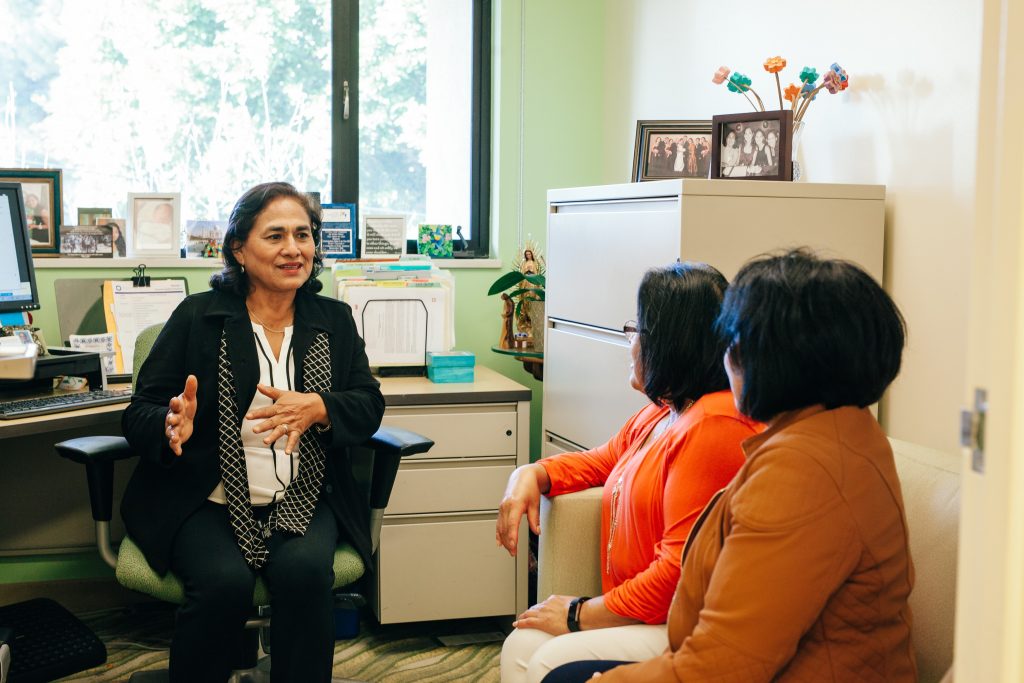BY KARA SHOEMAKER | February 19, 2020

Diabetes is a rapidly growing epidemic across the United States. There has been a dramatic rise in type 1 and 2 diabetes cases in both adults and children, and sadly, research shows that the disease does not affect all populations equally. Recent data from the CDC found that diabetes rates are twice as high for Latinos of Mexican heritage (18%) compared to Whites (9%). In Santa Barbara, the Sansum Diabetes Research Institute’s Community Outreach Program found that almost 1 in 2 Latino adults are at risk of type 2 diabetes, and that 5% of Latino adults have diabetes but are not aware.
The personal burden of diabetes is excessive for Latinos, meaning that they struggle more with the responsibility of managing the condition (known as diabetes control), and have higher rates of serious complications like kidney disease and mortality from stroke. Affording the cost of health care and medicines is also a huge challenge for local families.
So why is diabetes disproportionately high in this population? How can we reduce the burden of diabetes on Latino families?
“All in all, whatever we’ve been doing to this point has not impacted the risk of developing diabetes and the problems associated with the disease,” said Dr. David Kerr, Director of Research and Innovation at the Sansum Diabetes Research Institute (SDRI). “That’s why SDRI is looking at new ways to challenge the usual approach to diabetes, to actually make a difference by looking at whole families, looking at the environment, looking at the social determinants of health, and by also utilizing both medical and consumer technologies. This needs pretty radical thinking. There’s a ton of evidence that rates are going up, yet we haven’t changed outcomes and the control hasn’t improved, so we need to do things differently. That’s where SDRI is leading as a global leader in this space.”
“Diabetes is concern for all Americans,” said Pedro Paz, Director of Grantmaking at the Santa Barbara Foundation. “However, for Hispanic/Latino Americans, your chance of developing type 2 diabetes is more than 50%, and you’re likely to develop it at a younger age than other populations. The Mil Familias project of the Sansum Diabetes Research Institute is trying to change that.”
The Institute has developed an innovative ten-year initiative called Mil Familias to improve the lives of Latino families affected by diabetes through research, education, and care. The initiative will collect data from over 1,000 local Latino families that have at least one member living with diabetes. Data collected will cover the five determinants of health; genetics, biology, psychology, behavior, and the environment. This makes the Mil Familias cohort highly unique – no one else in the Unites States is looking this closely at a particular population that is clearly impacted by diabetes.

Early findings gathered from participant’s Fitbits and glucose monitors are giving unique insights into lifestyle as a determinant of diabetes risk. Data collected from participants using Fitbits shows that they are above average in terms of the number of steps taken daily.
SDRI is also providing medical prescriptions of vegetables for people with or at risk of diabetes through the Farming for Life program. By simply improving access to good food and fresh vegetables, participants are seeing improvements in health. They are losing weight, diabetes control is improving, and most importantly, food insecurity – a major risk factor for chronic disease like diabetes – is decreasing.
Another factor that impacts the risk of developing diabetes is the environment. Mil Familias is partnering with the Bren School of Environmental Science and Management at UC Santa Barbara to study air quality in Santa Barbara County and beyond, as there is growing evidence that particles in the air can influence the risk of developing diabetes. The Latino population may be exposed to higher levels of particulate pollution due to socioeconomic trends influencing where they live and work.
Perhaps the most crucial component of the initiative that is enabling these critical insights is the partnership with the Mil Familias Especialistas. Especialistas are a group of bilingual and bicultural citizen scientists from the Latino community who are trained in diabetes, clinical research, and care navigation. They are paired one-on-one with Mil Familias participants for the duration of the study.
“There is a special relationship that forms between participants and the Especialistas,” said Dr. Namino Glantz, Associate Director, Mil Familias Programs. “The Especialista becomes a resource, a friendly face and listening ear, someone who can answer questions. Someone who speaks their language, understands their community and culture.”

This is particularly valuable because participants have shared that doctors generally don’t go over their lab work or explain what the results mean in a way that they can understand. The Especialistas address this problem by providing health assessment and lab results to participants and connecting them with a primary care provider.
“We have also heard from participants that it is very hard to find information that is relevant to them and in their language. So SDRI put together a website called LatinoDiabetes.net which is bilingual and takes the newest, most cutting edge diabetes information and research, and translates it into lay language so people can read about relevant and current diabetes research that is understandable to them,” said Dr. Glantz.
The Mil Familias initiative has been well-received by the Latino community of Santa Barbara. In fact, the general sentiment seems to be that “It’s about time somebody asked us!” Participants want to be involved and contribute to the research, not only in order to help their own family, but also to help their community.
“There’s a lot of heart in Mil Familia participants,” shared Dr. Glantz. “There is a thirst for knowledge about their own health and their community’s health.”
To learn more about diabetes or how you can get involved with the Mil Familias Initiative, visit milfamilias.sansum.org.